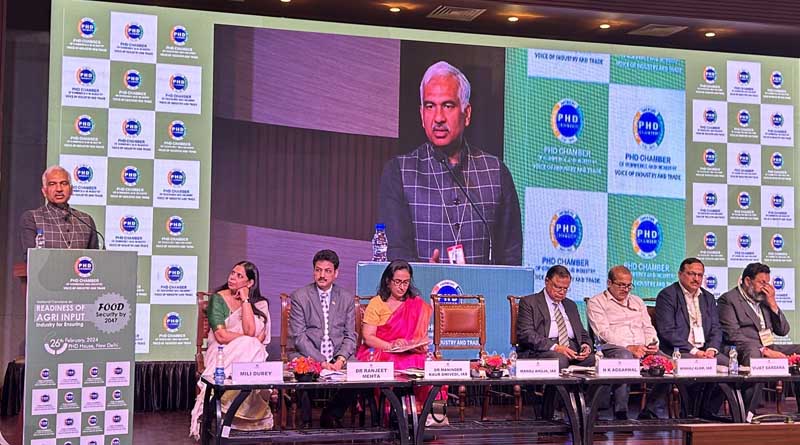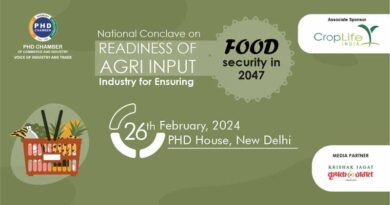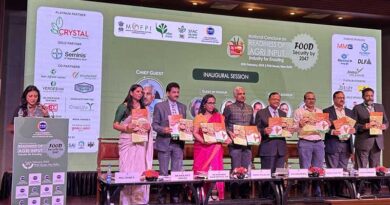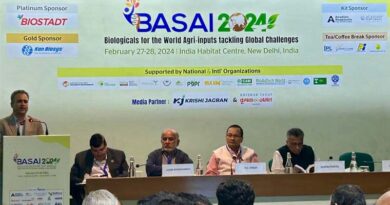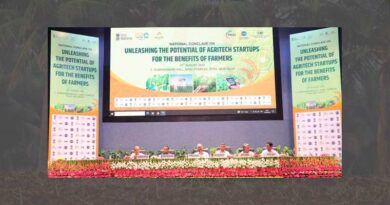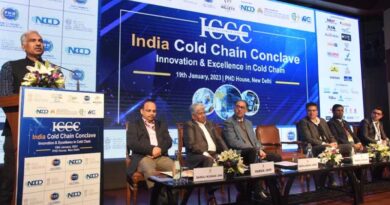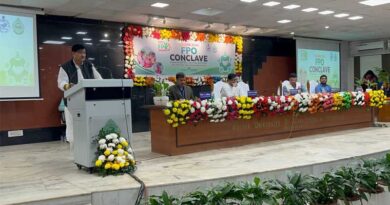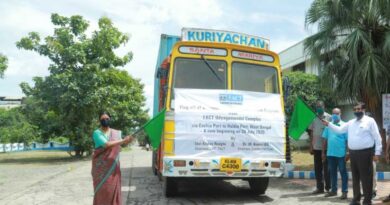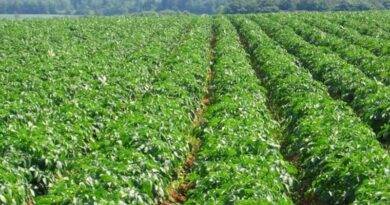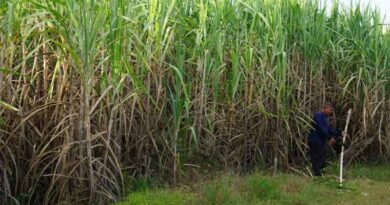Balance on Regulations Will Create the Right Ecosystem in Agriculture Sector: Secretary Agriculture Manoj Ahuja
27 February 2024, New Delhi: The Agri-Business Committee of the PHD Chamber of Commerce & Industry (PHDCCI) organized a National Agri Input Conclave on Monday, 26th February 2024. The event was based on the theme “Readiness of Agri Input Industry for Ensuring Food Security by 2047.
The conclave brought together key stakeholders, industry experts, policymakers, and thought leaders from the agricultural sector to deliberate on the challenges and opportunities surrounding the crucial goal of ensuring food security in India by 2047. As India strives to meet the escalating demands of a burgeoning population, it is imperative to focus on the preparedness of the agri-input industry to sustainably enhance agricultural productivity and safeguard the nation’s food supply.
Chief guest for the National Conclave, Manoj Ahuja, Secretary Agriculture, Ministry of Agriculture and Farmers’ Welfare in his inaugural address said, “When we talk about 2047, we need to be agile in accepting solutions regarding sustainability, reduction of chemical pesticide and climate change. A farmer needs the right knowledge of agri-input about its usability, productivity, and quality. The government and the industry are jointly responsible for this. Regarding the policies in the sector, the government tries to maintain a balance on regulations that creates an ecosystem that provides an incentive to the businesses supplying quality products and serves as a disincentive to those who are not.”
Addressing the audience N. K. Aggarwal, Chair, Agribusiness Committee, PHDCCI said, “We can only be successful in food security when everyone around us has access to sufficient, safe and nutritious food that meets our dietary needs to live a healthy life. Educating farmers is the most important part for ensuring food security as even if we have all the latest inputs in the country but the farmer is not educated about it, then all these inputs will not be able to add value to the farmers. Farmers, industry, researchers, and policymakers have to come together to achieve this goal.”
Vijay Sardana, Techno-legal Expert, Advocate, Supreme Court of India and Chairman, Kisan Vigyan Foundation (KAKV) in his keynote address said, “As the world is changing, we must change the way we do agriculture in India. The new European Green Deal talks about a 50% reduction in the use of agrochemicals and it will impact the way we do food production in India as the new laws change the requirements of our export markets. The use of key agri-inputs like seeds, fertilizers, and insecticides without proper knowledge is counterproductive. We need to improve the quality of information available to our farmers. It needs constant monitoring and control.”
Dr. Maninder Kaur Dwivedi (IAS), Additional Secretary, Department of Agriculture and Farmers Welfare and Managing Director, Small Farmers AgriBusiness Consortium (SFAC) said, “Three major categories of agri-input after seeds, fertilizers, and agrochemicals that get missed out are the inputs of animal husbandry like animal feeds, supplements, medicines for cattle, inputs of fisheries, and implements and machinery. All these agri-inputs are used by the farmers and are equally important as seeds, fertilizers, and agrochemicals. We have world-class companies, and government institutions supplying these inputs across rural India and yet there are villages where these inputs do not reach. We need to improve the distribution system through farmer collectives and explore to give these collectives to be a part of the distribution channel. Let there be healthy competition for rates and quality.”
Two whitepapers by the Kisan Vigyan Foundation on ‘Will India be Food secure in 2047’ and ‘Will India become self-sufficient in Pulses’ were released by the chief guests during the inaugural session. The whitepapers highlight the challenges India is facing to be food secure in 2047, the options that the country has for overcoming these, and the intervention required by the government and the industry.
Also Read: Marut Drones and PJTSAU’s Direct Seeding Device Receives World’s First Utility Patent
(For Latest Agriculture News & Updates, follow Krishak Jagat on Google News)

